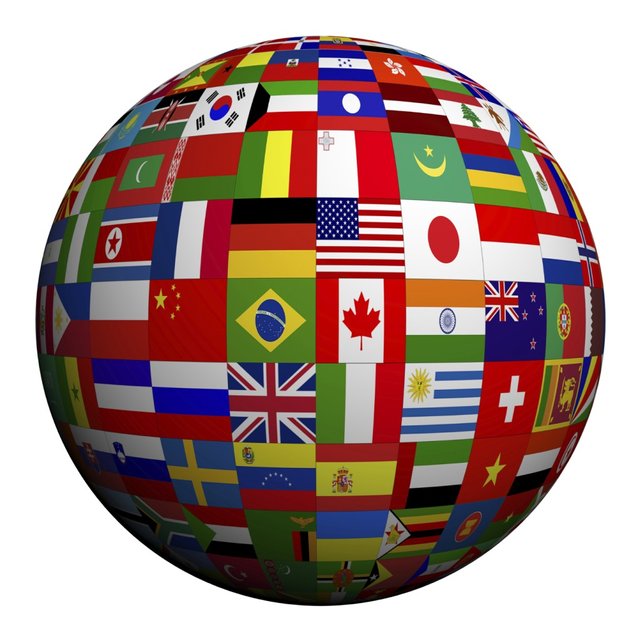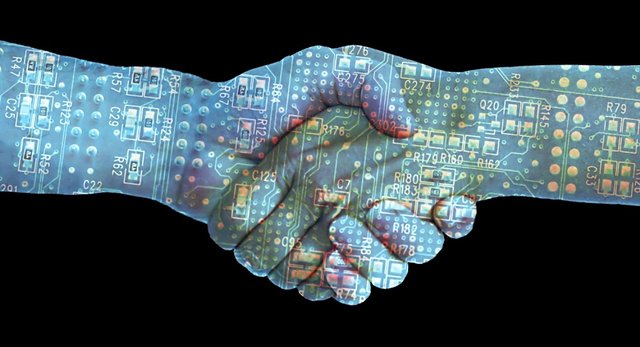Is “Virtual State” The Next Social Evolutional Step?
The social problem of nowadays states
Ok so let me make clear right in the beginning that this is not going to be some kind of anarchocapitalistic state-hate. I do think that government in its current form is the definition of “non-effective” in most of the fields it’s affecting. This article though will concentrate mainly on the aspect of social evolution under the influence of modern age and where I think it will get us in the future.

The territories of nowadays states have been set up quite some time ago. The world is not the same place as it used to be and most of the “aspects of civilization” are not quite keeping up. There is though one, which stands up. The civilizations have been formed by people living near each other that were supposed to share the culture, religion, moral, etc. I’m pretty sure that back then when people had no access to information whatsoever, it was a great thing to do. They only really interacted with each other and the gap between them and other civilizations (if they EVER came to interaction with any individual from it) was ever increasing. The states nowadays represent those civilizations. People are led to believe that the culture and all the other mentioned (and not mentioned) aspects are still connected to the state. If you want an example, look at USA. I believe though that this will end when 2 oldest generations die out.
The virtual state
Let me finally clarify what I mean by that. Because of the internet, people can connect with anyone in the world. They also have access to all the information in the world if they only knew where to search for it. The cultural, religious, etc. similarities are no longer connected to the territory, because people can explore the rest of the world. They actually never were “connected” to territories, it was just that people had no means how to access different thought processing and were “forced” to adhere the “local truths”.

On the internet though people are slowly finding out, that the way one thinks is not connected to where one is from. They are starting to search for online communities that share the same beliefs. On the internet, there is no need to spend time with those that live in totally different dimensions. One can always disconnect from them. It is because of this fact that globalization can never be stopped and is ultimately the best thing for humanity. The opinions that some cultures are not compatible with others are incorrect. Some people are not compatible with some people, not that people from some territories are not compatible with people from different ones. The “alike thinking communities” will crystalize and guess what, they will have nothing to do with current territories.
The virtual state level 2
Now imagine when Blockchain technologies join the “virtual globalization process”. The problem with people finding their communities just through the internet is that they don’t have any means how to effectively work outside of its boundaries. Blockchain provides MUCH more than just that. It provides rules, currency and basically whatever one wants from it. People could finally have a free choice of whether they want to join the state or not. Look for example at Steemit. There are so many growing communities that are creating Steem based physical projects across all the continents. Or Bitcoin that is liberating states which’s financial system had already collapsed. This will be an ever increasing tendency.

Only time will tell whether the Blockchain will have the support from the people and whether it will support the growth of competition in form of locally based virtual states/communities/ (call it however you want). The only way how to support this all is HODL! And that’s EXACTLY what I’ll be doing:).

I still haven't grasped the whole blockchain thing properly yet, but I do agree with what you have said here about people no longer being bound by their territory. We can now connect with like-minded people all over the world without prejudice of skin colour, gender, religion or state - we can just become friends because we have common interests. I love the freedom the internet provides. I think there is so much good in the world that has been achieved through the reach of the internet and virtual projects that do not get the recognition they deserve. great topic :)
Hmm let me try to explain how blockchain is connected to all of this. On the internet you can find the like-minded community (be it game, chat room, etc.), but every single entity is ruled by someone with supreme power. Blockchain solves this by decentralizing the power. All of the subjects join the platform willingly, thus accepting the rules enforced by the algorithm. No person can twist the rules to his need just like that - there are simply rules that are "carved to stone" and are not changeable. When you find the like-minded community (such as Steemit), the more work you do for it the bigger say you have. There are means how to use the blockchain (in other words "permanently updated database of who has what) in real world. For example "Parallel Polis" in our country is an institute that runs completely on cryptocurrency, thus avoiding the need to pay anything to the state. They have basically became the state in the state if you know what I mean. Because of the Blockchain they have been able to emancipate themselves. There is of course much more to that, I tried to keep it as simple as possible so you could grasp it a bit more:)
An interesting counterpoint to unification (and favoring decentralization) is https://www.amazon.com/gp/product/B01NB1IGQS/ref=oh_aui_search_detailpage?ie=UTF8&psc=1 . It's from the 1950's, no less. Hopefully "distibuted ledger" based governance can counter globalization in its current forms.
Can you try to persuade me a bit more to read the book?:P
The author's contention is that the trend towards unification and globalization (as seen from the 50's) has allowed bigger pools of power to collect. This in turn has weakened nations in proximity to the powerful ones. Because of that, they are "easier pickings" and do not present the same deterrence to what he considers the inevitable aggressiveness of humans and powerful organizations. That's his reasoning for WWI, WWII etc. - more destructive power due to scale.